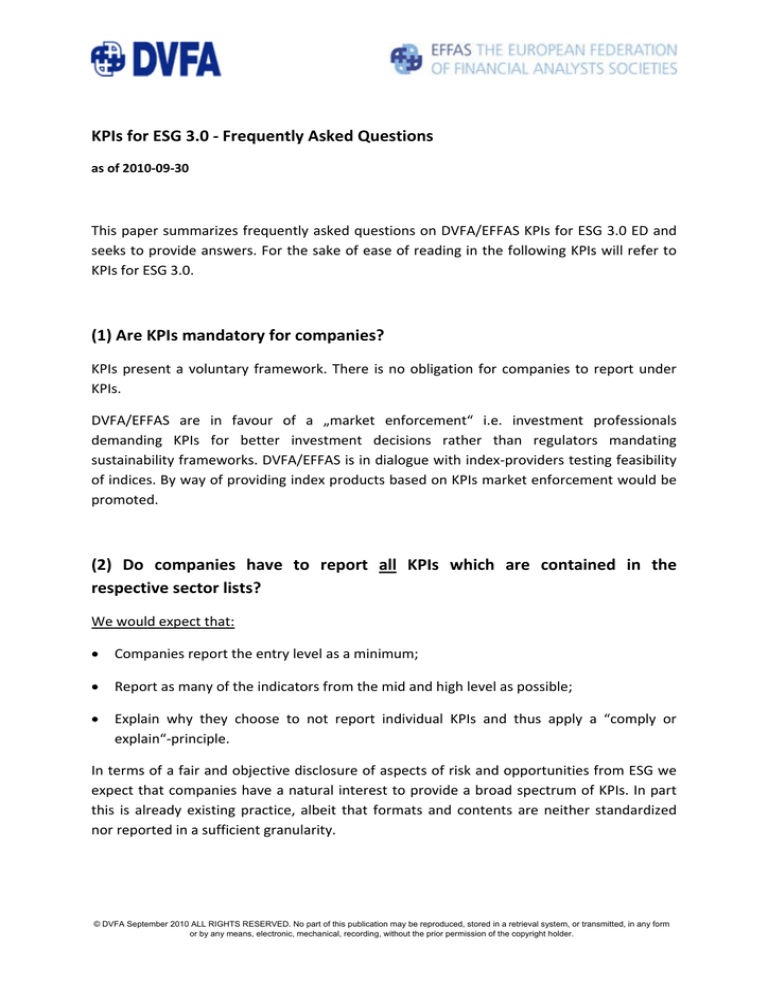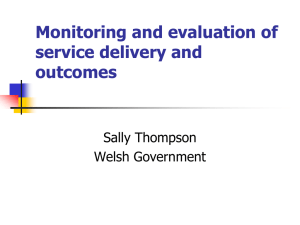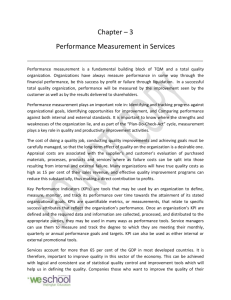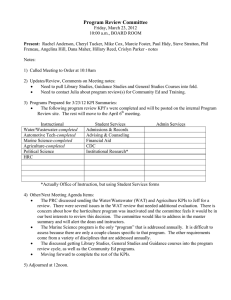
KPIs for ESG 3.0 ‐ Frequently Asked Questions
as of 2010‐09‐30
This paper summarizes frequently asked questions on DVFA/EFFAS KPIs for ESG 3.0 ED and
seeks to provide answers. For the sake of ease of reading in the following KPIs will refer to
KPIs for ESG 3.0.
(1) Are KPIs mandatory for companies?
KPIs present a voluntary framework. There is no obligation for companies to report under
KPIs.
DVFA/EFFAS are in favour of a „market enforcement“ i.e. investment professionals
demanding KPIs for better investment decisions rather than regulators mandating
sustainability frameworks. DVFA/EFFAS is in dialogue with index‐providers testing feasibility
of indices. By way of providing index products based on KPIs market enforcement would be
promoted.
(2) Do companies have to report all KPIs which are contained in the
respective sector lists?
We would expect that:
•
Companies report the entry level as a minimum;
•
Report as many of the indicators from the mid and high level as possible;
•
Explain why they choose to not report individual KPIs and thus apply a “comply or
explain“‐principle.
In terms of a fair and objective disclosure of aspects of risk and opportunities from ESG we
expect that companies have a natural interest to provide a broad spectrum of KPIs. In part
this is already existing practice, albeit that formats and contents are neither standardized
nor reported in a sufficient granularity.
© DVFA September 2010 ALL RIGHTS RESERVED. No part of this publication may be reproduced, stored in a retrieval system, or transmitted, in any form
or by any means, electronic, mechanical, recording, without the prior permission of the copyright holder.
(3) In which format should companies report KPIs for ESG 3.0?
We recommend:
a) Presentation:
− tabular format
− identical in format with financials i.e. including comparisons t0/ t1; quarter q0/q1 etc.
− additional and contextual information shoudl be dislosed in annotations.
b) Integration with other reports
− integrated with Management Discussion
− and placed at a prominent location on the website
− and integrated with other common instruments e.g. analyst presentations, quartely
reports, management summaries, internal reports.
(4) For some KPIs definitions of reference values such as region, product, life‐
cycles etc. have not been provided by DVFA/EFFAS. How should companies
define these references?
DVFA/EFFAS strongly recommend that companies align ESG‐reporting with IFRS‐based
reporting. This refers to consolidation as well as selection of reference values which
companies have to select for segment reporting according to IAS 14, IFRS 8 oder SFAS 131
(US GAAP) respectively. Those rules are beneficial to companies as they prescribe a
management approach i.e. reporting which reflects how the company is managed internally.
Any attempt to define objective and encompassing references for KPIs are bound to fail.
Such objective references do not exist for financial accounting either. Definite reference
values are typically included in so‐called „bright‐line rules“. Those, however, would stop
companies from applying business judgment, a concept which plays a fundamental role in
corporate reporting as business judgment provides leeway for corporate management.
Investors expect companies to disclose how they arrive at and calculate reference values.
(5) Do companies have to provide benchmark data on competitors or
markets?
As a matter of principle companies should only report data which are fully compliant with
legal requirements or internal guidelines. When there are no objections to reporting market
© DVFA September 2010 ALL RIGHTS RESERVED. No part of this publication may be reproduced, stored in a retrieval system, or transmitted, in any form
or by any means, electronic, mechanical, recording, without the prior permission of the copyright holder.
or competitive data (because e.g. these data are in the public domain), companies doing so
signal investors that they do understand the requirements of the investment decision‐
making process.
(6) Qualitative analysis requires qualitative data. Why should companies not
report qualitative data?
DVFA/EFFAS do not even suggest that companies stop reporting in narrative or prose style.
However, for investors quantitative data in tabular format makes financial analysis more
efficient and increases the likelihood that ESG‐data are being taken into account.
We would also strongly suggest that financial reporting should not artificially be restricted to
written reporting. Very important sources of information for investors are discussions with
company management. Senior management must be capable of talking about ESG. KPIs
provide a helpful tool to put ESG topics on the agenda of management.
(7) What are DVFA/EFFAS‘ intentions with regards to regulation?
DVFA/EFFAS are standard setters. We define standards as voluntary sets of rules (in contrast
to laws or directives).
Both DVFA and EFFAS set standards for corporate reporting based on requirements of users
of corporate reports and with the intention to increase decision usefulness of corporate
information. KPIs for ESG are intended to be endorsed by companies to the end of making
their CSR‐or sustainability‐reports better instruments for investment decisions.
DVFA/EFFAS are in close dialogue with regulators and policy‐makers both hat national and
international level. Comparable to IFRS which are a set of accounting rules authored by a
private organization but endorsed by legislators KPIs for ESG 3.0 offer themselves available
for endorsement by legislative or policy‐defining institution.
DVFA/EFFAS are in favor of a market‐driven approach which is why we fully support
International Integrated Reporting Committee (IIRC).
© DVFA September 2010 ALL RIGHTS RESERVED. No part of this publication may be reproduced, stored in a retrieval system, or transmitted, in any form
or by any means, electronic, mechanical, recording, without the prior permission of the copyright holder.





